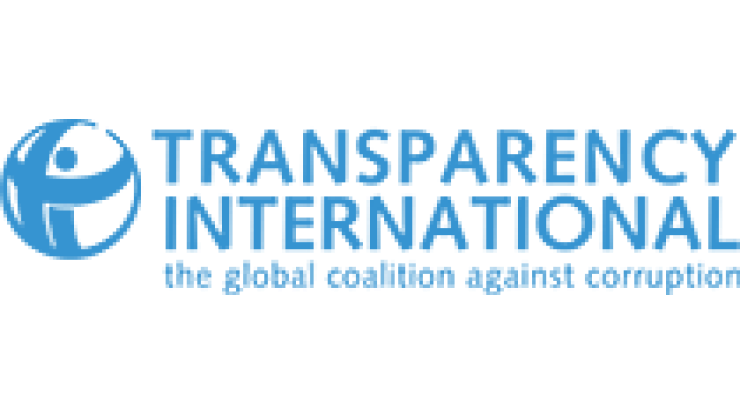အပြည်ပြည်ဆိုင်ရာ ပွင့်လင်းမြင်သာမှုအဖွဲ့ (Transparency International- TI) သည် နိုင်ငံပေါင်း ၁၈၀ ၏ နှစ်အလိုက် အဂတိလိုက်စားမှု အညွှန်းကိန်း (CPI)
- Tue, 9 May 2023

အပြည်ပြည်ဆိုင်ရာ ပွင့်လင်းမြင်သာမှုအဖွဲ့ (Transparency International- TI) သည် နိုင်ငံပေါင်း ၁၈၀ ၏ နှစ်အလိုက် အဂတိလိုက်စားမှု အညွှန်းကိန်း (CPI) များကို ထုတ်ပြန်ပေးသော အဖွဲ့အစည်း တစ်ခုဖြစ်ပြီး ယခုပေးပို့လာသောသတင်းလွှာတွင် အောက်ဖော်ပြပါ အချက်များ အဓိက ပါဝင်ပါ သည်-
(က) ယခုသီတင်းပတ်တွင် ဥရောပကော်မရှင်သည် ကာလရှည်ကြာစွာ စောင့်ဆိုင်းခဲ့ရ သော အဂတိလိုက်စားမှုတိုက်ဖျက်ရေး အစီအစဉ်ကို စတင်ဆောင်ရွက်ခဲ့ပါ ကြောင်း၊ ၎င်းတွင် EU တစ်ဝှမ်း အဂတိလိုက်စားမှုနှင့် ဆက်နွှယ်သည့် ရာဇ၀တ်မှု များအတွက် အဓိပ္ပါယ်ဖွင့်ဆိုချက်များနှင့် ပြစ်ဒဏ်များ တစ်ညီတစ်ညွတ်တည်း ရှိစေရန် အဂတိလိုက်စားမှုတိုက်ဖျက်ရေးနှင့် စပ်လျဉ်းသည့် ပြဋ္ဌာန်းချက်များ ပါဝင်ပါကြောင်း။
(ခ) ကောင်းမွန်သည့် အခြေအနေဖြစ်ပါကြောင်း၊ 2022 Corruption Perceptions Index (CPI) ကို ထုတ်ပြန်ရာတွင် မိမိတို့ မီးမောင်းထိုးပြ ခဲ့သည့်အတိုင်း EU နိုင်ငံ အများအပြားသည် ခေတ်စနစ်နှင့် လိုက်လျောညီထွေမှုမရှိသည့် ဥပဒေများနှင့် စနစ်မကျသည့် ချဉ်းကပ်မှုများဖြင့် အဂတိလိုက်စားမှုတိုက်ဖျက်ရေးကို ဆောင် ရွက်နေသောကြောင့် အားနည်းနေပါကြောင်း။
(ဂ) သာမန်အားဖြင့်ဆိုရလျှင် ကော်မရှင်သည် ၎င်း၏ကိုယ်ပိုင် ကမ္ဘာလုံးဆိုင်ရာ အဂတိ လိုက်စားမှုတိုက်ဖျက်ရေးနှင့်စပ်လျဉ်းသည့် အရေးယူမှုများပြုလုပ်ရန် နောက်ဆုံး တွင် အဆိုပြုခဲ့ပါကြောင်း၊ အကယ်၍ အဆိုပါ အရေးယူမှုများကို လက်ခံကျင့်သုံး ပါက EU သည် ကြီးလေးသော အဂတိလိုက်စားမှုများအတွက် နိုင်ငံခြားသား တစ်ဦးချင်းနှင့် အဖွဲ့အစည်းများကို ပိတ်ဆို့အရေးယူနိုင်ခွင့် ရရှိမည် ဖြစ်ပါကြောင်း၊ ဤဒေသသည် ကမ္ဘာတစ်ဝှမ်းမှ ခိုးယူသွားသော ပစ္စည်းများကို ကာလကြာရှည်စွာ ထိန်းသိမ်းထားနိုင်မည့် နေရာဟု ယူဆပါက ဤကမ္ဘာလုံးဆိုင်ရာ အဂတိလိုက်စား မှုတိုက်ဖျက်ရေး အရေးယူမှုများကို ကြိုဆိုပါကြောင်း။
(ဃ) ဥရောပပါလီမန်သည် လက်တွဲဆောင်ရွက်လျက်ရှိသည့် အဖွဲ့၏ အသင်းအဖွဲ့နှင့် ဆိုင်သော ပွင့်လင်းမြင်သာမှု မူဘောင်ကို ပြန်လည်ပြင်ဆင်ရန် ခိုင်မာသော အစီ အမံများ အဆိုပြုခဲ့သည်မှာ ရက်သတ္တပတ် အတော်ကြာခဲ့ပြီဖြစ်ကြောင်း၊ ငွေကြေး ခဝါချမှုတိုက်ဖျက်ရေး အစီအစဉ်နှင့်စပ်လျဉ်း၍ သဘောတူရန် စေ့စပ်ညှိနှိုင်းမှုများ သည် လာမည့် သီတင်းပတ်တွင် စတင်မည်ဖြစ်ပါကြောင်း၊ ဂျာနယ်လစ်များ၊ တက်ကြွလှုပ်ရှားသူများ၊ ပညာရှင်များနှင့် နိုင်ငံခြားအာဏာပိုင်များအား ကုမ္ပဏီ များ၏ ပိုင်ရှင်မှန်ဆိုင်ရာ အချက်အလက်များကို မည်သို့ဝင်ရောက်ခွင့် ပေးသင့် သည်ကို သိလိုပါကြောင်း။
(င) ဤပြဿနာသည် အဆိုပါအစီအစဉ်၏ ထိပ်ဆုံးသို့ ရောက်ရှိစေရန်အတွက် ဥရောပ ပါလီမန်၏ တိုးတက်ပြောင်းလဲမှုဆိုင်ရာ ပြဋ္ဌာန်းချက်များကို ပြတ်သားစွာ ထောက်ခံရန် လက်မှတ်ရေးထိုးသူ ၂၀၀ နီးပါးထံမှ ကော်မရှင်ကို လူသိရှင်ကြား တောင်းဆိုခဲ့ပါကြောင်း။
(စ) အစုရှယ်ယာ ထည့်ဝင်မှုများသည် မြင့်မားလျက် ရှိနေပြီး အရပ်ဘက်လူ့အဖွဲ့ အစည်းနှင့် ကျွန်ုပ်တို့၏ မဟာမိတ်များသည် ဤအရေးကြီးသော အချက်အလက် များ၏ အဓိပ္ပာယ်အပြည့်အစုံကို ဝင်ရောက်လေ့လာခွင့် မရပါက မကြာသေးမီနှစ် များအတွင်း ရရှိခဲ့သော တိုးတက်မှုများစွာကို ဆုံးရှုံးသွားမည်ဖြစ်ပြီး နယ်စပ် ဖြတ်ကျော်ဘဏ္ဍာရေးဆိုင်ရာ ရာဇ၀တ်မှုများကို တိုက်ဖျက်ရာတွင် ထိခိုက်နစ်နာမှု များနှင့် ဆက်လက်ရင်ဆိုင်ရမည် ဖြစ်ပါကြောင်း၊ ယခု ကော်မရှင်သည် အဆိုပြု တင်ပြထားသော ဒဏ်ခတ်အရေးယူမှုများကိုပင်လျှင် ဖုံးကွယ်ဖျောက်ဖျက်ရန်မှာ ပို၍ လွယ်ကူနေမည်မှာ သေချာပါကြောင်း၊
(ဆ) နိုင်ငံခြားအေးဂျင့်အသစ်များ၏ လုပ်ရပ်တို့မှာလည်း စိုးရိမ်ဖွယ် ဖြစ်နေပါကြောင်း၊ ယင်းအခြေအနေမှာ လက်ခံနိုင်ဖွယ်ဖြစ်သော်လည်း တစ်ကမ္ဘာလုံးအတိုင်းအတာ ဖြင့် အလွန်ထိတ်လန့်ဖွယ်ရာဖြစ်နေပြီး အီးယူတစ်ဝှမ်းရှိ နိုင်ငံသားလွတ်လပ်ခွင့် များကို ထိခိုက်စေမည့် အန္တရာယ် ရှိနေပါကြောင်း၊ အရပ်ဘက်အဖွဲ့အစည်း ၂၀၀ ကျော်က ယခုသီတင်းပတ်အတွင်း ထုတ်ပြန်သည့် ကြေညာချက်တွင် ယင်းအဆိုကို ပြန်လည်စဉ်းစားရန် ကော်မရှင်ကို တောင်းဆိုထားပါကြောင်း၊
(ဇ) ကမ္ဘာတဝှမ်းရှိ အခြားနေရာများတွင် အလားတူဥပဒေများကြောင့် အဂတိလိုက်စား မှုတိုက်ဖျက်ရေး ဆောင်ရွက်သူများအပေါ် ဖိနှိပ်မှုများကို ဖြစ်ပေါ်စေပါကြောင်း၊ ထို့ကြောင့် ကော်မရှင်သည် အဂတိလိုက်စားမှုနှင့် အခြားသော စည်းကမ်းချိုး ဖောက်မှုမျိုးများကို တိုက်ဖျက်နေသည့် လွတ်လပ်၍ အမှီအခိုကင်းသော အရပ် ဘက် လူ့အဖွဲ့အစည်းကို အန္တရာယ်ပြုခြင်းမှ တားဆီးကာကွယ်ရန် လိုအပ်ပါ ကြောင်း၊
(ဈ) လာမည့်ရက်သတ္တပတ်များအတွက် ကော်မရှင်အား ချင့်ချိန်စဉ်းစားနိုင်ရန် လုံလောက်သော အချက်အလက်များ ပေးအပ်နိုင်မည်ဟု မျှော်လင့်ပါကြောင်း၊ အဂတိလိုက်စားမှုကို တိုက်ဖျက်ရာတွင် အီးယူအနေဖြင့် မည်သို့ပင် ရှေ့တိုး နောက်ဆုတ် လုပ်ဆောင်စေကာမူ ကျွန်ုပ်တို့၏ တောင်းဆိုချက်များကို ဂရုတစိုက် ထည့်သွင်းစဉ်းစားမှုပေါ်တွင်လည်း မူတည်နေပါကြောင်း ဖော်ပြပါရှိပါသည်။




/0-80x80.jpg)
/1-80x80.jpg)
/1-80x80.JPG)
/1-80x80.png)
/0-80x80.jpg)
/1-80x80.jpg)
/1-80x80.jpg)